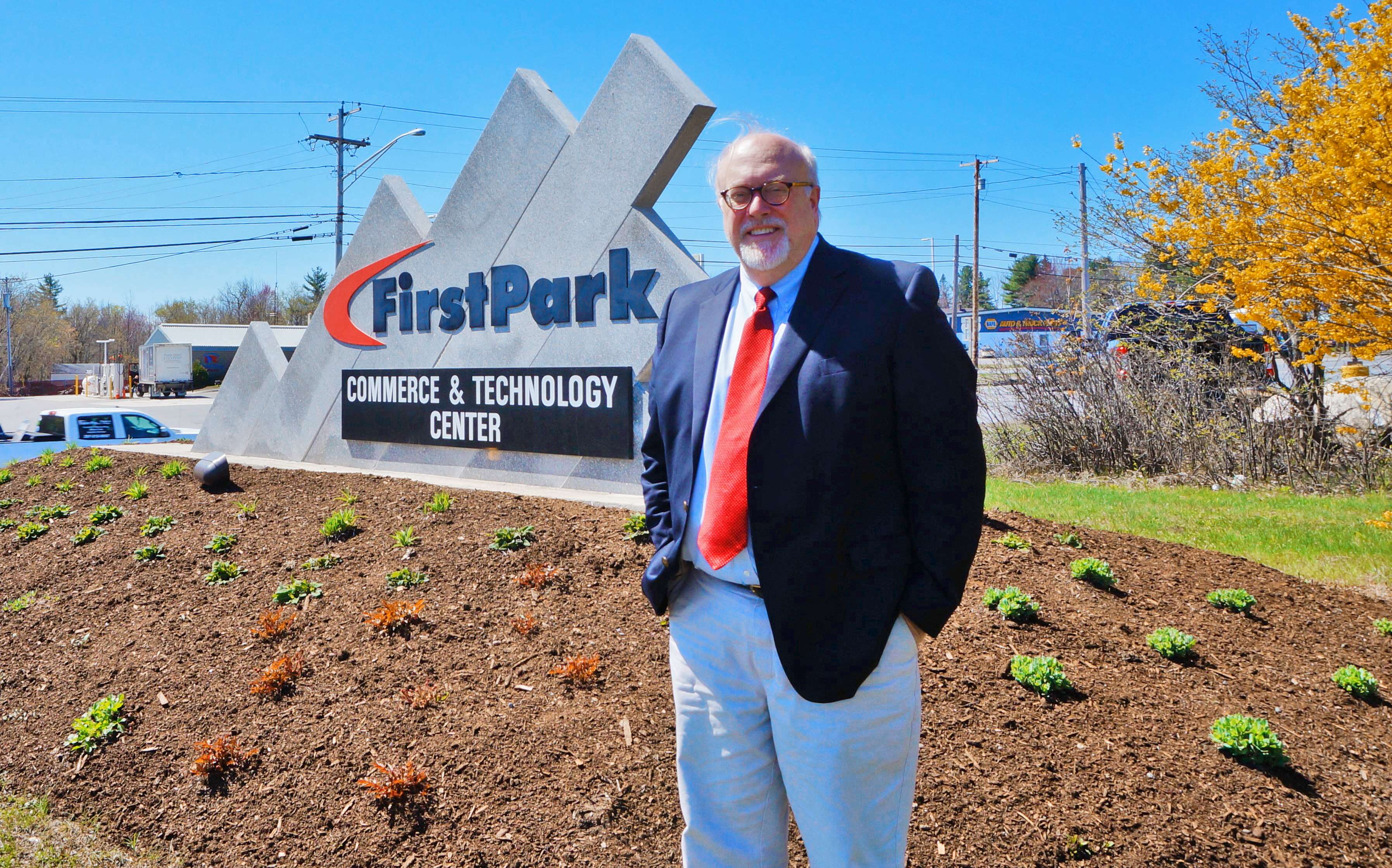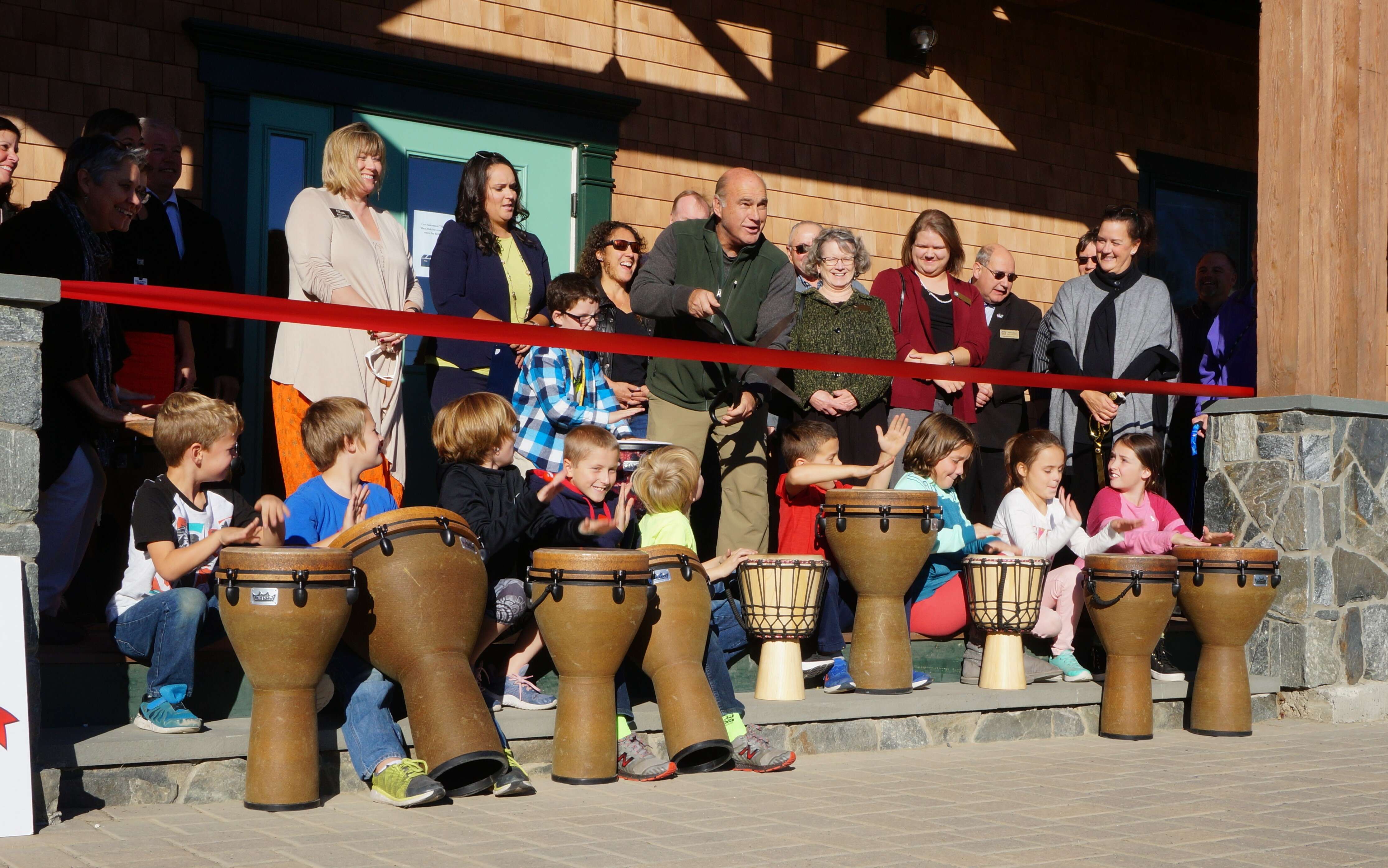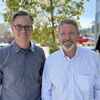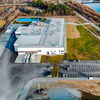
Processing Your Payment
Please do not leave this page until complete. This can take a few moments.
- News
-
Editions
View Digital Editions
Biweekly Issues
- December 15, 2025
- December 1, 2025
- Nov. 17, 2025
- November 03, 2025
- October 20, 2025
- October 6, 2025
- + More
Special Editions
- Lists
- Viewpoints
-
Our Events
Event Info
Award Honorees
- Calendar
- Biz Marketplace
Snow Pond Center gets backup to spark regional development effort
More Information
Snow Pond Center for the Arts has been named to the national Citizens Institute for Rural Design, something officials at the Sidney arts center and school say is the first step to a collaborative Kennebec County economic development foundation.
"Education, the arts and culture are the primary drivers of economic development, and when looked at historically across the U.S., rural communities that are vibrant, growing, dynamic have that common theme," John Wiggin, Snow Pond executive director said in a Mainebiz inverview.
Wiggin said the Citizens Institute designation, which comes through the National Endowment for the Arts, is an opportunity to create a more cohesive economic development strategy for the Belgrade Lakes Region, as well as the surrounding area.
Snow Pond Center, which includes the charter school Maine Arts Academy, New England Music Camp and a number of educational and community programs, was one of 20 designees nationwide, and the only one in New England.
Wiggin and Christa Johnson, Snow Pond director of development, said that while their organization is the recipient, the designation is meant to benefit the region.
MIllinocket was also designated as a host community, one of three, nationwide for a multi-day community design workshop.
Snow Pond is part of a new peer learning component of the program, which was established by the NEA in 1991. The peer learning intitiative partners with the Housing Assistance Council and buildingcommunityWORKSHOP. It is intended to help communities of 50,000 residents or less to capitalize on unique local assets that can guide development and future design of the communities, the NEA said in a news release.
Program goals include building capacity in rural communities to plan comprehensive revitalization strategies; introduce creative placemaking, arts, culture and design strategies as drivers of economic development; facilitate a network of rural communities to exchange ideas; and help communities compete for state and federal funding.

A cohesive plan
The goals of the initiative are to get feedback on how to best market the region, to have a cohesive plan to attract investment and determine what role the area plays as far as arts, culture and education. A first step is to apply for grants that will pay for consulting and other needed work. Wiggin and Johnson will also attend a workshop in West Virginia next month.
Wiggin said done right, the effort can reduce town tax rates and address issues like school capacity, transportation and more.
The natural attractions of the area, particularly the lakes, Kennebec River and the Kennebec Highlands, are an attractive asset, Wiggin said. "If we can't attract young people to this area, it's not a good sign for any place in Maine."
The effort will focus on the Belgrade Lakes Region — the towns of Sidney, Belgrade, Rome and Oakland that are roughly in between Augusta and Waterville — but will also radiate outward, particularly including Augusta.
Another aspect includes teaming up with Ben Lamb, a project consultant from 1Berkshire, based in Pittsfield, Mass.
The group was formed in rural western Massachusetts in 2016, combining countywide economic development organizations Berkshire Economic Development Corporation, Berkshire Chamber of Commerce, Berkshire Visitors Bureau and the Berkshire Creative Economy Council. By combining the groups, they "leverage resources, improve efficiency, expand audience reach, and coordinate programs that benefit every area of the region," the group says on its website.
Wiggin said Lamb's input will be key — the area is the same size as Kennebec County with similar challenges.
The plan is to form a strategy that focuses on a creative economy built around health care, tourism, food, agriculture and commerce that's scalable to the region.
The aims of the program reach beyond obvious economic ones.
Johnson said the learning cohort aspect of the Citizens Initiative program is also a key piece. "We can talk to other communities about things like marketing, communicating," she said.
As a transplant to Maine, she said that finding a community network in the rural area can be tough for those who are new. Both she and Wiggin said building a social fabric that has a more regional focus is also an important part of the program.
"There's got to be a plan for the family," when someone moves to Maine for a job, Wiggin said. "What is the spouse going to do? Where are the kids going to go to school? What is their social network going to be like? Building a social network is so important."

'Strategic ally'
Snow Pond has formed a team of more than two dozen organizations and individuals to help drive the initiative, including the Orton Family Foundation and Grow Smart Maine, the Kennebec Valley Chamber of Commerce, the 7 Lakes Alliance, Belgrade Regional Business Association, MaineGeneral health system, municipal officials from area towns, and more.
Commerce and technology park FirstPark, in Oakland, is also part of the team.
Jim Dinkle, executive director of FirstPark, said he sees Snow Pond as a strategic ally in regional economic development, and he's happy FirstPark has a seat at the table.
"The Snow Pond team possesses a world view beyond the Kennebec Valley and central Maine of economic development and how to best market the region to people who are away from here," he said.
Wiggin, in an interview with Mainebiz Wednesday, said issues of attracting business, as well as younger residents, and retaining both, are a challenge all over Maine.
"But particularly north of Portland, for Maine to be economically prosperous, we need to attract workers and retain what we have," he said. "Rural Maine is different, it's more difficult to attract investment and residents."
Turning that around starts with a regional collaborative effort that will combine resources of the region's communities, he said. The average population of Kennebec County's 29 towns and cities and one unorganized territory is 4,000. Augusta, with a population of about 18,500, its the largest municipality in the county.
"There's investment in Augusta, there's investment in Waterville, but there's no cohesive plan," he said.
State Sen. Matt Pouliot, R-District 15, is the team's legislative representatives. He lives in Augusta and has a downtown real estate office. His district includes Augusta, China, Oakland, Sidney and Vassalboro.
Pouliot said the he Kennebec Valley region was a hub of economic activity for 200 years, beginning in the 18th century, and driven by the mills along the Kennebec River. While that industry is gone, the Kennebec River, and other area assets remain, Pouliot told Mainebiz.
"We must find creative ways to sustain ourselves in the 21st century and grow beyond our current base of employment in the area," he said. "To do this requires collaboration regionally and a compelling case for why the Kennebec Valley, as a whole, is still a relevant destination for employers to locate and employees to live, work and play.

Community engagement a key
The town of Sidney is taking part in the Orton Foundation community-building Heart and Soul program. While that's separate from the Citizens Initiative for Rural Design, Orton is also part of the regional team and brings a model for it to follow.
Johnson said Heart and Soul, which includes workshop and community charettes, is resident-driven, not driven by a governmental entity. "It's the community talking about what they want for their community," she said.
She recently attended a meeting of Heart and Soul communities, and was impressed by the collaborative spirit. "They want to see other towns be successful, too," she said.
"It's all part of the community engagement process," Wiggin said.
Engagement is something the Snow Pond Center has been striving for the past few years. Aside from major upgrades to its historic Bowl in the Pines amphitheater, and development of its innovation and technology center, the campus hosts quarterly community dinners and other activities for the Sidney area.
It also last year started a concert series that's expected to grow as the amphitheater work is completed, and is developing a trail network on land it owns across Route 23 from the campus that will be open for year-round public use.
Dinkle, of FirstPark, said Snow Pond is a crucial element to the area's economic development.
"Snow Pond’s place as a preeminent educational, arts and cultural facility in central Maine contributes greatly to the quality of life, access to world class entertainment and revenue back to the region from visitors, tourism and students," he said.
He said he's quick to market it to FirstPark business prospects "as a place for entertainment, business retreats and an escape from the hustle and bustle of big cities."
Wiggin said while Snow Pond already has a focus on the community, the new initiative expands that.
"We're doing it for the benefit of the region," he said. "We're taking a leadership role, but it's a regional effort."
Community events surrounding the initiative will be scheduled around the area, and Snow Pond expects to have technology set up by then that will allow people to live-stream meetings and workshops. A major point of the process is to be as inclusive and accessible as possible.
"If we're going to do this effectively, we have to get people involved," Wiggin said.
Regional Economic Development Team
GrowSmart Maine, works with organizations and municipalities to convene discussion and take actions to revitalize our communities and economy while protecting our natural resources.
Orton Family Foundation empowers people through the Heart & Soul program to shape the future of their communities by improving local decision-making, creating a shared sense of belonging, and ultimately, strengthening the social, cultural and economic vibrancy of communities.
Citizens’ Institute on Rural Development, a leadership initiative of the NEA and USDA, with the goal of enhancing the quality of life and economic viability of rural America through planning, design, and creative placemaking. Snow Pond is one of 20 learning cohorts in the U.S.
1Berkshire, Ben Lamb, project consultantm provides resources to build and now monitor the goals and objectives developed through the Blueprint 2.0 model that creates an agile approach of providing sustained and high impact economic development for the Berkshires.
Towns of Belgrade, Oakland, Rome and Sidney civic Leadership.
Regional School Unit 18 Superintendent Carl Gartley, Oakland-based school district includes the towns of Oakland, Belgrade, Rome, Sidney and China.
FirstPark Commerce and Technology Center, Oakland, James W. Dinkle, executive director.
Kennebec Valley Tourism Council, a nonprofit group organized to manage the Maine Tourism Marketing Partnership Program grant issued by the Maine Office of Tourism and the state of Maine.
7 Lakes Alliance, Belgrade, supports land and water conservation in the Lakes Region by engaging with the community to achieve clean water, well stewarded lands, and a vibrant economy.
Belgrade Lakes Region Business Group, a nonprofit organization of more than 50 members that promotes the business community for the benefit of the residents, visitors and towns.
MaineGeneral Health System, based in Augusta.
Kennebec Valley Chamber of Commerce.
Kennebec Valley Art Association, supports the artistic development of artists in the Kennebec Valley community, by providing opportunities for exhibition and other professional development.
Maine Farm Bureau, mission to ensure that Maine farms will be a diversified, growing, and vital part in Maine’s economy by embracing technology and innovation.
Kennebec Valley Council of Governments provides planning and technical assistance support services for municipal officials interested in taking advantage of State and federal financial programs for infrastructure development and other economic development projects.
State Sen. Matt Pouillot, R-District 15, representing Augusta, China, Oakland, Sidney and Vassalboro, and serves on the Legislature's Education and Cultural Affairs Committee, in support of economic development and sustainability for the Kennebec Valley.
About Community Insitute for Rural Design
CIRD provides access to the resources that communities need to convert their own good ideas into reality. It includes support for up to 20 rural communities, in which selected community leaders are invited to gather for peer learning; training in design, planning, community engagement, and facilitation techniques; and support in navigating funding opportunities to make their vision a reality.
It also offers competitive funding to small towns and rural and tribal communities to host a multi-day community design workshop.
Both parts of the CIRD program connect rural residents with resources and ideas for developing locally driven solutions to community design challenges.
Mainebiz web partners

The Giving Guide
The Giving Guide helps nonprofits have the opportunity to showcase and differentiate their organizations so that businesses better understand how they can contribute to a nonprofit’s mission and work.
Learn More
Work for ME
Work for ME is a workforce development tool to help Maine’s employers target Maine’s emerging workforce. Work for ME highlights each industry, its impact on Maine’s economy, the jobs available to entry-level workers, the training and education needed to get a career started.
Learn More
Groundbreaking Maine
Whether you’re a developer, financer, architect, or industry enthusiast, Groundbreaking Maine is crafted to be your go-to source for valuable insights in Maine’s real estate and construction community.
Learn more-
The Giving Guide
The Giving Guide helps nonprofits have the opportunity to showcase and differentiate their organizations so that businesses better understand how they can contribute to a nonprofit’s mission and work.
-
Work for ME
Work for ME is a workforce development tool to help Maine’s employers target Maine’s emerging workforce. Work for ME highlights each industry, its impact on Maine’s economy, the jobs available to entry-level workers, the training and education needed to get a career started.
-
Groundbreaking Maine
Whether you’re a developer, financer, architect, or industry enthusiast, Groundbreaking Maine is crafted to be your go-to source for valuable insights in Maine’s real estate and construction community.
ABOUT
NEW ENGLAND BUSINESS MEDIA SITES
No articles left
Get access now
In order to use this feature, we need some information from you. You can also login or register for a free account.
By clicking submit you are agreeing to our cookie usage and Privacy Policy
Already have an account? Login
Already have an account? Login
Want to create an account? Register
Get access now
In order to use this feature, we need some information from you. You can also login or register for a free account.
By clicking submit you are agreeing to our cookie usage and Privacy Policy
Already have an account? Login
Already have an account? Login
Want to create an account? Register







0 Comments